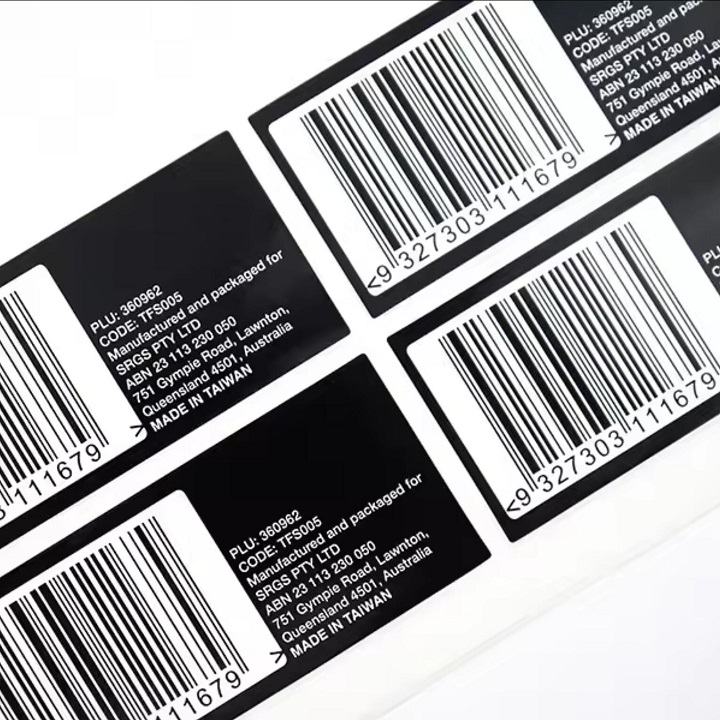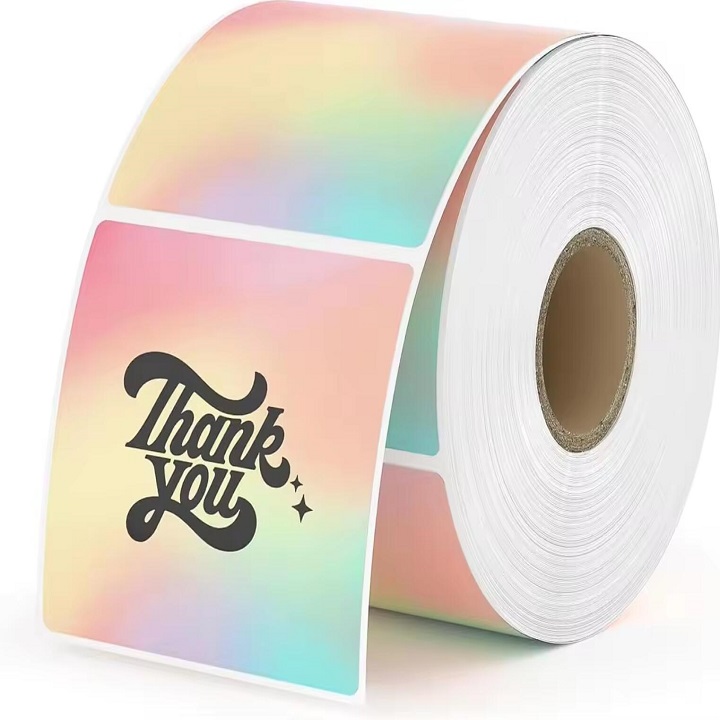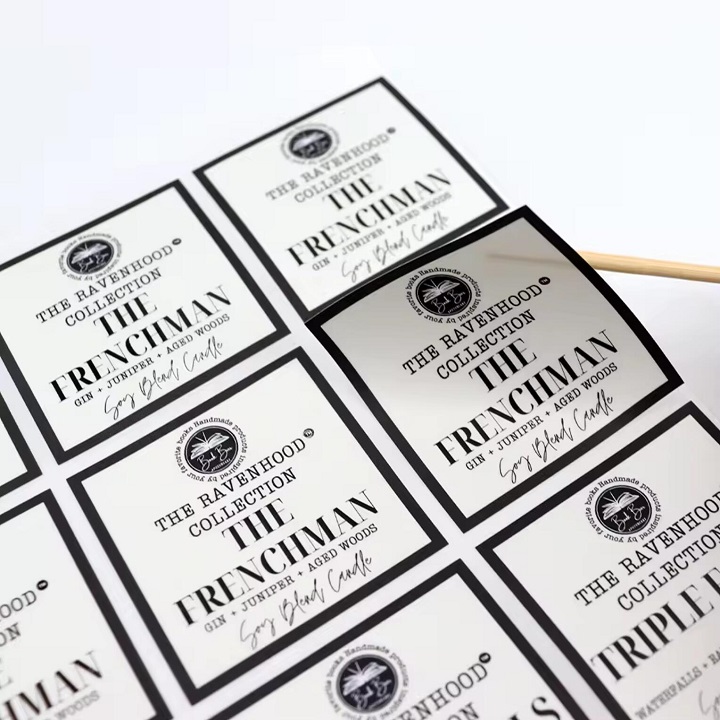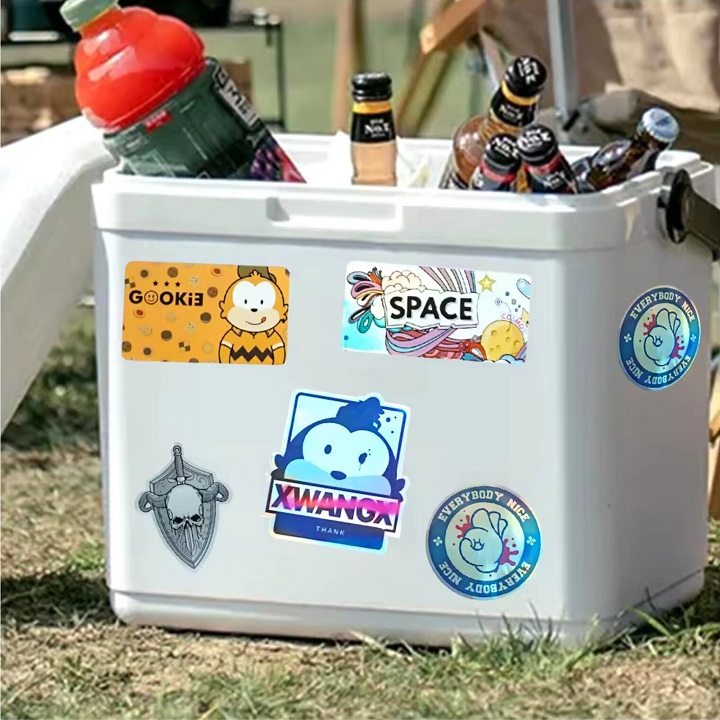Content Menu
● The Landscape of Labels Manufacturers and Suppliers in South Korea
● Types of Labels and Materials Used
● OEM Services and Customization Capabilities
● Sustainability and Future Trends
● Choosing the Right Labels Manufacturer or Supplier in South Korea
● Conclusion
● Frequently Asked Questions (FAQs)
>> 1. What makes South Korean labels manufacturers and suppliers stand out globally?
>> 2. Can South Korean labels manufacturers accommodate small minimum order quantities?
>> 3. Are eco-friendly label options widely available in South Korea?
>> 4. How do manufacturers ensure design confidentiality with OEM clients?
>> 5. What is the typical lead time from sample approval to delivery?
● Citations:
In today's competitive global market, choosing the right labels manufacturers and suppliers is essential for brands aiming to stand out with exceptional packaging and branding solutions. South Korea has emerged as a leading hub for labels manufacturing, offering advanced technology, superior quality, and innovative customization. For international brands, wholesalers, and manufacturers seeking reliable OEM partners, understanding the South Korean labels industry is crucial. This article provides a comprehensive overview of top labels manufacturers and suppliers in South Korea, their product offerings, OEM services, industry trends, and key considerations for choosing the right partner.

The Landscape of Labels Manufacturers and Suppliers in South Korea
South Korea boasts a flourishing labels manufacturing industry distinguished by high standards, cutting-edge technologies, and creativity. The country serves a wide array of sectors, including cosmetics, electronics, apparel, food and beverage, pharmaceuticals, and retail, supplying diverse labeling needs from protective and security labels to decorative and promotional stickers.
Leading manufacturers in South Korea excel in producing various types of labels such as self-adhesive vinyl labels, printed paper labels, heat transfer labels, woven fabric labels, and eco-friendly biodegradable options. These companies emphasize rapid innovation, stringent quality control, and compliance with international standards to meet global client demands.
Several notable players include:
- SAELIM CO., LTD: A pioneer since 1970 with specialization in self-adhesive label stocks, offering hundreds of face materials and adhesives tailored for multiple industries.
- Kwangjin Label: Established in 1987, renowned for high-quality woven, printed, and embroidered labels, serving fashion and sports brands worldwide with customization and efficient service.
- Samwon Printech: Known for apparel and barcode labels, heatseal labels, and automated production tailored to global retail giants including Gap, Walmart, and Kohl's.
- Red Printing & Press: Specializes in on-demand printing services featuring photo books, stickers, posters, and wristbands with flexible, short-run production capability.
- HERNINE: Focuses on innovative specialty stickers like nail decals using non-toxic, eco-friendly materials reflecting South Korea's sustainability ethos.
South Korea's labels sector is also characterized by a collaborative ecosystem where manufacturers partner closely with material scientists, graphic designers, and logistics providers to streamline production timelines and maximize product impact.
Types of Labels and Materials Used
South Korean labels manufacturers offer an expansive range of label types using a variety of high-quality materials to suit diverse applications and branding goals:
- Vinyl Stickers and Labels: Durable, weather-resistant, suitable for outdoor applications including vehicles and industrial equipment. These labels often feature UV resistance and abrasion-proof coatings to enhance longevity in harsh environments.
- Self-Adhesive Paper Labels: Cost-effective and versatile for promotional, packaging, and short-term needs. Available in gloss, matte, and textured finishes, they can accommodate various printing methods like digital, flexographic, and offset.
- Heat Transfer Labels: Widely used in apparel, these labels offer permanent branding that withstands repeated washing, stretching, and wear. They are often made from soft, flexible materials for consumer comfort.
- Woven and Embroidered Labels: Premium textile labels with detailed craftsmanship ideal for fashion and sportswear. Available in custom weave patterns, colors, and thread types (including organic cotton and recycled yarn), they enhance brand prestige.
- Printed Labels: Including paper, polyester, and polypropylene substrates that are water and chemical resistant, serving critical product branding and safety information roles in pharmaceuticals, electronics, and food sectors.
- Security and Holographic Labels: Used to protect authenticity and prevent counterfeiting with enhanced visual effects, including holograms, microtext, guilloche patterns, and tamper-evident features. These labels are increasingly sought by luxury and pharmaceutical brands.
- Eco-Friendly and Biodegradable Options: Rising in demand globally, these labels are made from recyclable materials combined with biodegradable films and water-based adhesives. They align with circular economy principles and cater to environmentally conscious brands.
- Specialty Plastics and Films: Created for high durability, heat resistance, or interactive applications, such as embedding NFC (Near Field Communication) or QR code technologies. These smart labels enhance consumer interaction, traceability, and provide digital ecosystems for branding.
South Korean manufacturers continuously innovate by integrating nanotechnology coatings for scratch resistance and antimicrobial properties, reflecting the country's leadership in advanced material science.
OEM Services and Customization Capabilities
South Korean labels manufacturers excel in providing comprehensive OEM and ODM services designed to meet specific client needs:
- Tailored Production: Manufacturers develop custom formulations, adhesives, and finishes tailored to various substrates and environmental resistance requirements. This ensures labels perform optimally on diverse surfaces like glass, plastic, fabric, and metal.
- Rapid Prototyping and Sampling: State-of-the-art digital printing and production equipment enable quick turnaround of samples, allowing clients to review design, color accuracy, and material feel before committing to bulk orders.
- Flexible Order Quantities: Manufacturers accommodate a wide range of order sizes, from startups requiring small batch production to multinational firms demanding large-scale industrial runs, all while maintaining competitive pricing and quality.
- Design Consultation and Technical Support: Expert teams work closely with clients on label design optimization, advising on durability factors, application methods, and innovative printing techniques such as UV printing, embossing, and foiling.
- Security Features Integration: Companies specialize in incorporating advanced security elements such as holographic foils, laser etching, invisible inks, and serial numbering to protect brand value and counteract piracy.
- Supply Chain and Logistics Management: Korean suppliers offer streamlined supply chain solutions including just-in-time delivery, inventory management, and global shipping expertise critical for meeting delivery deadlines and reducing inventory costs.
Manufacturers like SAELIM CO., LTD and Kwangjin Label are particularly noted for their advanced R&D, enabling continuous innovation in label materials and printing methods, which positions them as frontrunners in global OEM partnerships.

Sustainability and Future Trends
Sustainability is a driving force in the South Korean labels industry. Companies prioritize environmentally friendly production methods and materials:
- Use of biodegradable and recyclable label materials and packaging reduces landfill waste and conserves resources.
- Adoption of water-based, solvent-free adhesives minimizes chemical emissions and health risks associated with volatile organic compounds (VOCs).
- Lean manufacturing processes, including waste reduction strategies and optimized energy consumption, reduce environmental footprints while improving cost efficiency.
- Integration of smart production lines leveraging automation, AI, and IoT to optimize resource utilization, enhance quality consistency, and reduce machine downtime.
- Development of interactive and digital labels embedding QR codes, NFC chips, or RFID technology to reduce the need for excessive printed information, lowering paper usage while engaging consumers digitally.
- Exploration of bio-derived polymers and sustainable inks derived from natural sources like algae and soy to replace petrochemical-based materials.
- Implementation of circular economy principles where manufacturers design labels for easy removal and recycling, supporting brand commitments to sustainability.
South Korea's commitment to sustainability aligns well with global consumer demand for eco-conscious branding solutions, positioning its labels manufacturers as leaders in green innovation while maintaining commercial viability.
Choosing the Right Labels Manufacturer or Supplier in South Korea
When selecting a South Korean labels partner, carefully evaluate key factors to ensure a successful collaboration:
- Certifications and Quality Control: Verify the manufacturer's compliance with ISO standards (ISO 9001 for quality, ISO 14001 for environmental management) and other industry-specific certifications to guarantee consistent product quality and sustainable practices.
- Material Range and Sustainability: Ensure the supplier can provide the label materials you require, particularly if eco-friendly options or specialty substrates are critical to your branding strategy.
- Customization Flexibility: Assess their capability to produce custom shapes, innovative finishes, adhesives, and security features that align with your product's application and brand identity.
- Production Capacity and Lead Times: Confirm that the supplier can scale production according to your demand cycles and meets your required deadlines to avoid market delays.
- Communication and Support: Effective English communication and responsive customer service are vital for smooth collaboration, especially in managing design specifications, production changes, and troubleshooting.
- Sample Availability: Request high-quality samples early to evaluate the look, feel, and performance of labels under real-world conditions before placing bulk orders.
- After-Sales Service: Strong post-sale support, including assistance with reorders, resolving quality issues, or technical advice, helps maintain continuity and protect your brand reputation.
By carefully weighing these factors, companies can forge strong OEM partnerships with South Korean labels manufacturers that deliver superior product quality, innovation, and reliable service.
Conclusion
South Korea has established itself as a premier destination for labels manufacturing and supply, offering unparalleled product quality, cutting-edge customization, and a strong commitment to sustainability. The country's labels manufacturers serve a wide spectrum of industries with comprehensive OEM services that cater to various order sizes and unique branding needs. With rigorous quality assurance, fast turnaround times, and flexible production capacity, partnering with South Korean labels suppliers can elevate your brand's packaging to a new standard. Whether seeking traditional paper labels, heat transfer tags, or innovative eco-friendly solutions, South Korean manufacturers provide world-class expertise and reliability to meet growing global demands.

Frequently Asked Questions (FAQs)
1. What makes South Korean labels manufacturers and suppliers stand out globally?
South Korean manufacturers combine advanced printing technology, rigorous quality control, and innovative material development, supported by a strong regulatory framework and a culture of continuous improvement. This results in superior product quality and reliability tailored for diverse global markets.
2. Can South Korean labels manufacturers accommodate small minimum order quantities?
Yes, many manufacturers, especially those specializing in digital printing and on-demand services, offer flexible minimum order quantities suitable for startups and small businesses testing their market.
3. Are eco-friendly label options widely available in South Korea?
Absolutely. Korean manufacturers are at the forefront of sustainable production, offering a variety of biodegradable and recyclable label materials combined with water-based adhesives to reduce environmental impact.
4. How do manufacturers ensure design confidentiality with OEM clients?
Reputable OEM suppliers in South Korea utilize strict confidentiality agreements, secure handling practices, and ethical business standards to protect proprietary designs and intellectual property.
5. What is the typical lead time from sample approval to delivery?
Lead times generally range between one to three weeks depending on order complexity and volume. South Korea's advanced production capabilities and logistics infrastructure allow reliable and timely delivery.
Citations:
[1] https://www.xkdisplay.com/top-stickers-manufacturers-and-suppliers-in-south-korea.html
[2] https://ensun.io/search/flexible-packaging/south-korea
[3] https://www.tyoemcosmetic.com/oem-cosmetic-manufacturer-korea/
[4] https://www.kwangjinlabel.com
[5] http://swprintech.co.kr/eng/
[6] https://nakocos.com/top-10-oem-cosmetic-in-korea/
[7] https://ensun.io/search/private-label-manufacturing/south-korea
[8] https://www.sunecobox.com/paper-packaging-boxes-south-korea/
[9] https://sourcing-lab.com
[10] https://www.volza.com/p/adhesive-label/manufacturers/manufacturers-in-south-korea/
[11] https://www.paperindex.com/companies/paper-suppliers-exporters/packaging-papers/south-korea/5323/7/2/0
[12] https://www.kmwcosmetics.com
[13] https://kr.kompass.com/a/adhesive-labels/16450/
[14] https://www.korpack.co.kr
[15] https://mayk-factory.com
[16] https://www.go4worldbusiness.com/suppliers/south-korea/label.html
[17] https://www.aaglobalprint.com/seoul-south-korea
[18] https://www.minyolabs.com
[19] https://mm.group/packaging/products/labels/
[20] https://www.tailim.com/eng/company/overview.php
































